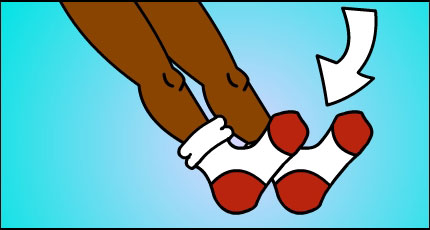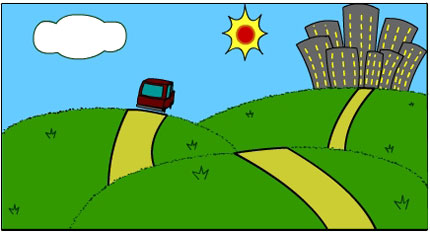Prepositions of Direction—Onto

Welcome to the Purdue OWL
This page is brought to you by the OWL at Purdue University. When printing this page, you must include the entire legal notice.
Copyright ©1995-2018 by The Writing Lab & The OWL at Purdue and Purdue University. All rights reserved. This material may not be published, reproduced, broadcast, rewritten, or redistributed without permission. Use of this site constitutes acceptance of our terms and conditions of fair use.
Prepositions of Direction—Onto
Uses of "Onto"
"Onto" can generally be replaced by "on" with verbs of motion.

Here are some more examples:
- Dietrich jumped on(to) the mat.
- Huan fell on(to) the floor.
- Athena climbed on(to) the back of the truck.
Some verbs of motion express the idea that the subject causes itself or some physical object to be situated in a certain place (compare the three example directly above).
Of these verbs, some take only "on". Others take both on and onto, with the latter being preferred by some speakers.

Here are some more examples:
- The plane landed on the runway. (not onto the runway)
- Sam hung the decoration on the Christmas tree. (not onto the tree)
- He placed the package on the table. (not onto the table)
- Joanna spilled her Coke on the rug. (not onto the rug)
- Samir moved the chair on(to) the deck.
- The crane lowered the roof on(to) the house.
- The baby threw the pot on(to) the floor.
Verbs taking only "on" are rare: set may be another one, and so perhaps is put. Other verbs taking both prepositions are raise, scatter (when it takes a direct object), pour, and add.
- The farmer scattered seed on(to) the fertile ground.
- We're adding on a wing at the back of the building.
- We're adding a porch onto the house.
In "We're adding on a wing at the back of the building" on is really part of the verb, while in "We're adding a porch onto the house" onto is a simple preposition. This contrast points to a fairly important and general rule:
Simple prepositions can combine with verbs, but compound prepositions cannot.
Note also that in "The farmer scattered seed on(to) the fertile ground", the word "on" has its ordinary meaning of a position on a surface, but in this case the surface is vertical rather than horizontal— the side of a building.
There are a number of verb-preposition combinations which are formally like "add on" but have the meaning "of continuing or resuming an action" when used in the imperative mood.
Except for hang, which takes both on and onto, they all occur only with on. The meanings of these combinations, some of which are idiomatic, are given in parentheses. Not all of them have the force of a command.
- Hang on(to the rope) ('continue to grasp tightly')
- carry on ('resume what you were doing')
- sail on ('resume or continue sailing')
- dream on ('continue dreaming'; a humorous way of saying 'that is an unattainable goal')
- lead on ('resume or continue leading us')
- rock on ('continue playing rock music')
